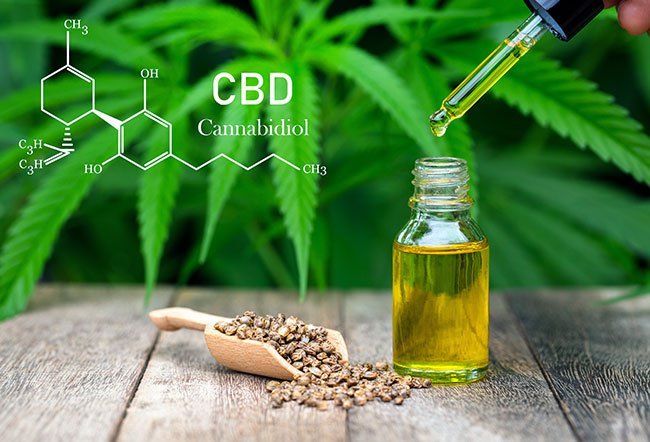What Does CBD Do to You?

Cannabidiol (CBD) acts on the brain’s serotonin receptors and releases feel-good chemicals, helping elevate mood. However, research is underway to investigate how CBD does this, as the exact mechanism of action is not conclusive.
Because of its serotonin-boosting effect, CBD may be able to help people with psychological issues, including:
What is CBD?
CBD comes from the marijuana or cannabis plant and is the only ingredient that is used for medical purposes. Unlike marijuana, CBD alone does not give you a high. It does not have the potential to cause addiction or substance abuse.
Despite the many claims regarding the health benefits of CBD oil, not every claim has sufficient evidence to back it up. Moreover, although you can get CBD in most states, its legality is still somewhat in a grey area.
What are the potential uses of CBD oil?
Chronic pain
Animal studies have found CBD to be effective in treating chronic pain caused by arthritis and nerve damage (neuropathy). However, studies conducted on humans are needed to make them available for use in humans.
Childhood epilepsy syndrome
Some childhood epilepsy syndromes, such as Dravet syndrome and Lennox-Gastaut syndrome (LGS), fail to respond to the typical medications prescribed for epilepsy. Many studies have shown that CBD has the potential to reduce the frequency of seizures and even stop them altogether. The FDA has approved a CBD-containing medicine, Epidiolex, to treat children affected with these conditions.
Insomnia
According to some studies, CBD may help people suffering from insomnia by helping them fall asleep faster and stay asleep for longer (7-9 hours straight).
Heart health
A 2017 study published in the Journal of Clinical Investigation found that CBD oil intake was linked to lowered blood pressure and improved cardiac efficiency in healthy adults who were exposed to stressors.
What are the potential risks of CBD?
While CBD has potential health benefits, it can also cause side effects such as nausea, fatigue, and irritability. And if you are taking other medications, CBD may interact negatively with them. For example, CBD can interact with blood-thinning medications such as warfarin and increase the risk of bleeding.
It’s also important to remember that since CBD is sold as a dietary supplement and not a medicine, the FDA does not regulate its safety or purity, nor are there specific recommendations as to dosages. Moreover, not all supplements mention the complete list of ingredients on their labels.
Because there is no guarantee that CBD products are safe or effective, it’s best consult your doctor before you take anything that contains CBD.
